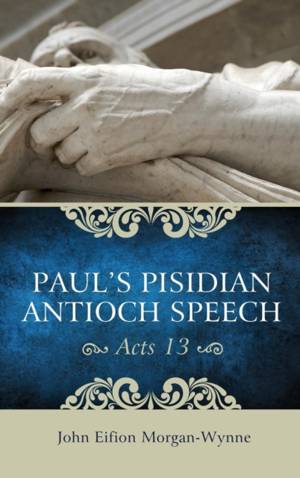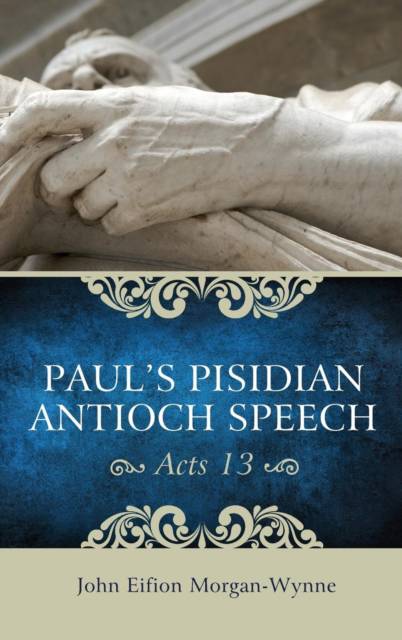
- Retrait gratuit dans votre magasin Club
- 7.000.000 titres dans notre catalogue
- Payer en toute sécurité
- Toujours un magasin près de chez vous
- Retrait gratuit dans votre magasin Club
- 7.000.0000 titres dans notre catalogue
- Payer en toute sécurité
- Toujours un magasin près de chez vous
54,45 €
+ 108 points
Format
Description
After a review of scholarly work on the speeches in Acts, particularly Paul's Pisidian Antioch speech, Morgan-Wynne sets Paul's speech in the context of the first missionary journey and of the rest of Luke-Acts. In this book he analyzes the structure of the speech, asks whether Luke used sources for the speech, and examines the main theological themes, including the characterization of God and Jesus, the use of the OT, the place of Israel, and the portrait of Paul that emerges. Finally, the author looks at whether the speech sheds any light on the community for which Luke wrote and the problems which it may have been facing. A very readable but detailed survey of scholarship on this often-ignored speech of Paul, with a judicious study of its teaching and its function in the Lucan account of the early Christian mission. --I. Howard Marshall, University of Aberdeen, Aberdeen, Scotland John Morgan-Wynne's examination of this 'message of salvation' in Acts 13 is now the most comprehensive available. Whether or not you agree with every conclusion, you will find this to be a careful treatment of the historical, literary, and theological elements of this important evangelistic speech of Paul's in Acts, as well as a readable guide through the secondary literature. No stone is left unturned! --Alan J. Thompson, Sydney Missionary and Bible College, Sydney, Australia John Eifion Morgan-Wynne was tutor in New Testament and Dean of Regent's Park College Oxford (1965-87) and lecturer in New Testament Greek in the University of Oxford, and then Principal of Bristol Baptist College (1987-93). Now retired, he is the author of Holy Spirit and Religious Experience in Christian Literature ca. 90-200 AD and The Cross in the Johannine Writings.
Spécifications
Parties prenantes
- Auteur(s) :
- Editeur:
Contenu
- Nombre de pages :
- 276
- Langue:
- Anglais
Caractéristiques
- EAN:
- 9781498227308
- Date de parution :
- 19-06-14
- Format:
- Livre relié
- Format numérique:
- Genaaid
- Dimensions :
- 152 mm x 229 mm
- Poids :
- 539 g

Les avis
Nous publions uniquement les avis qui respectent les conditions requises. Consultez nos conditions pour les avis.






